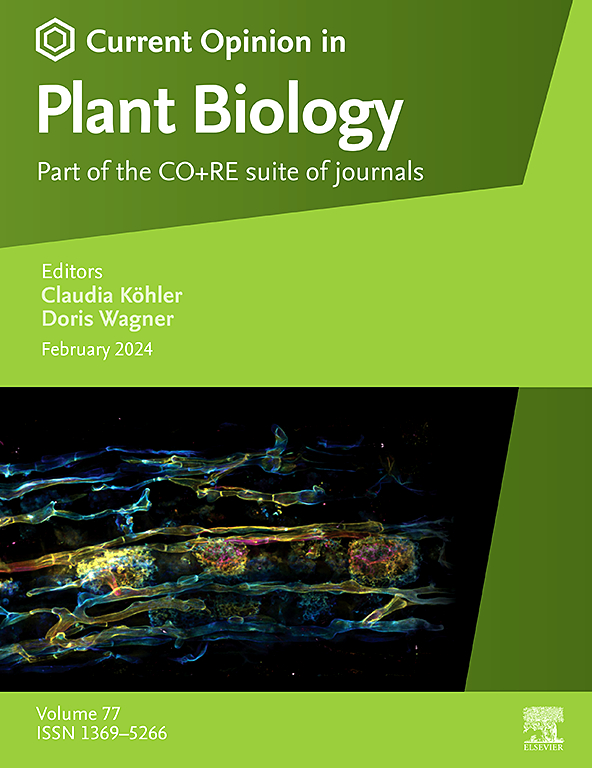Prospects for functional genomics of genes involved in coffee-specialized metabolism through cross-species integrative omics
IF 7.5
2区 生物学
Q1 PLANT SCIENCES
引用次数: 0
Abstract
Coffee (Coffea spp.) is one of the most economically important crop species and serves as a rich source of bioactive specialized (secondary) metabolites with various health-promoting properties. Advances in analytical food chemistry and phytochemistry have elucidated an extensive and structurally diverse specialized metabolism in coffee beans, much of which contributes to both organoleptic attributes and adaptive physiological responses in coffee plants. Recent developments in omics-driven methodologies have provided new insights into both coffee metabolism and breeding strategies, particularly those aimed at enhancing both quality traits and environmental resilience. Comparative genomic analyses across Coffea species and cultivars have facilitated the detection of metabolic polymorphisms, enabling inter- and intra-species assessments of biosynthetic pathway variation and the refinement of biosynthetic frameworks for further functional genomics approaches. Such approaches yield critical information regarding the genetic and biochemical determinants underlying specialized metabolite accumulations, which can be directly applied for targeted metabolic engineering and crop improvement. Moreover, cross-species comparative omics and multi-omics integrative analyses, particularly in relation to phylogenetically relevant taxa such as Solanaceae species, exemplified by the model crop tomato (Solanum lycopersicum), provide valuable translational insights into conserved and divergent metabolic architectures.
通过跨物种整合组学研究咖啡代谢相关基因的功能基因组学前景
咖啡(Coffea spp.)是经济上最重要的作物物种之一,是具有多种促进健康特性的生物活性特化(次生)代谢物的丰富来源。分析食品化学和植物化学的进展已经阐明了咖啡豆中广泛且结构多样的特殊代谢,这些代谢在很大程度上有助于咖啡植物的感官属性和适应性生理反应。组学驱动方法的最新发展为咖啡代谢和育种策略提供了新的见解,特别是那些旨在提高质量性状和环境适应能力的方法。跨咖啡种和栽培品种的比较基因组分析促进了代谢多态性的检测,使物种间和物种内生物合成途径变异的评估和生物合成框架的完善成为可能,从而为进一步的功能基因组学方法提供支持。这些方法产生了关于特殊代谢物积累的遗传和生化决定因素的关键信息,可以直接应用于有针对性的代谢工程和作物改良。此外,跨物种比较组学和多组学综合分析,特别是与系统发育相关的分类群,如茄科物种,如模式作物番茄(Solanum lycopersicum),为保守和分化的代谢结构提供了有价值的翻译见解。
本文章由计算机程序翻译,如有差异,请以英文原文为准。
求助全文
约1分钟内获得全文
求助全文
来源期刊

Current opinion in plant biology
生物-植物科学
CiteScore
16.30
自引率
3.20%
发文量
131
审稿时长
6-12 weeks
期刊介绍:
Current Opinion in Plant Biology builds on Elsevier's reputation for excellence in scientific publishing and long-standing commitment to communicating high quality reproducible research. It is part of the Current Opinion and Research (CO+RE) suite of journals. All CO+RE journals leverage the Current Opinion legacy - of editorial excellence, high-impact, and global reach - to ensure they are a widely read resource that is integral to scientists' workflow.
 求助内容:
求助内容: 应助结果提醒方式:
应助结果提醒方式:


